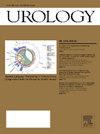输精管切除术前常规精子冷冻保存与手术精子提取或输精管切除术逆转相比,不具有成本效益,也不会增加活产率。
IF 2.1
3区 医学
Q2 UROLOGY & NEPHROLOGY
引用次数: 0
摘要
目的:确定输精管结扎术后希望再生孩子的患者,输精管结扎前常规精子冷冻保存是否比生育恢复更具成本效益?方法:对已发表的关于冷冻保存、输精管结扎逆转、手术取精和辅助生殖技术(ART)的疗效和结果进行范围回顾。成本数据收集自美国进行低温保存和男科临床护理的机构。使用TreeAge Pro成本效益建模软件生成了一个成本效益模型,该模型具有三种不同的变量,分别代表具有预期参数中值的平衡方案,具有假设/变量的方案,以及有利于生育恢复的方案。主要终点是每活产成本,次要终点是总活产率。结果:输精管切除术前冷冻保存成本(每活产140,247美元,范围为48,232 - 552,807美元)显著高于生育恢复成本(20,059美元,范围为20,059 - 30,698美元)。令人惊讶的是,当使用已发表的文献值时,与冷冻保存(46%,范围36% - 58%)相比,生育恢复组的妊娠成功率似乎越来越高(62%,范围44% - 66%)。结论:输精管切除术前的常规精子冷冻保存给患者和医疗系统带来了明显更高的成本,并且与精子恢复或输精管切除术逆转的生育能力相比,似乎并没有增加活产率。没有生育风险因素的患者应被告知额外的费用和输精管切除术前冷冻保存的ART的必要性,但如果需要,仍应允许继续进行。本文章由计算机程序翻译,如有差异,请以英文原文为准。
Routine Sperm Cryopreservation Before Vasectomy Is not Cost-effective and Does not Increase Live Birth Rates Compared to Surgical Sperm Retrieval or Vasectomy Reversal
Objective
To determine if routine pre-vasectomy sperm cryopreservation is more cost-effective than fertility restoration for patients who desire additional children following vasectomy?
Methods
A scoping review was performed to collect published data regarding efficacy and outcomes of cryopreservation, vasectomy reversal, surgical sperm retrieval, and assisted reproductive technologies (ART). Cost data were collected from US-based facilities performing cryopreservation and andrology clinical care. A cost-effectiveness model was generated using TreeAge Pro cost-effectiveness modeling software with 3 different variations representing a balanced scenario with median expected parameter values, a scenario with assumptions/variables favoring pre-vasectomy cryopreservation, and a scenario favoring fertility restoration. The primary outcome was cost per live birth and the secondary outcome was overall live birth rate.
Results
Pre-vasectomy cryopreservation cost ($140,247, range $48,232-$552,807 per live birth) was significantly higher than with fertility restoration ($20,458 range $20,458-$30,698). Surprisingly, pregnancy success rates appeared to be incrementally higher in the fertility restoration group (62%, range 44%-66%) compared to cryopreservation (46%, range 36%-58%) when using published literature values.
Conclusion
Routine sperm cryopreservation prior to vasectomy conveys a significantly higher cost to patients and the healthcare system and does not appear to increase live birth rate compared to fertility restoration with sperm retrieval or vasectomy reversal. Patients without fertility risk factors should be counseled on the added cost and need for ART with pre-vasectomy cryopreservation but should still be allowed to proceed if desired.
求助全文
通过发布文献求助,成功后即可免费获取论文全文。
去求助
来源期刊

Urology
医学-泌尿学与肾脏学
CiteScore
3.30
自引率
9.50%
发文量
716
审稿时长
59 days
期刊介绍:
Urology is a monthly, peer–reviewed journal primarily for urologists, residents, interns, nephrologists, and other specialists interested in urology
The mission of Urology®, the "Gold Journal," is to provide practical, timely, and relevant clinical and basic science information to physicians and researchers practicing the art of urology worldwide. Urology® publishes original articles relating to adult and pediatric clinical urology as well as to clinical and basic science research. Topics in Urology® include pediatrics, surgical oncology, radiology, pathology, erectile dysfunction, infertility, incontinence, transplantation, endourology, andrology, female urology, reconstructive surgery, and medical oncology, as well as relevant basic science issues. Special features include rapid communication of important timely issues, surgeon''s workshops, interesting case reports, surgical techniques, clinical and basic science review articles, guest editorials, letters to the editor, book reviews, and historical articles in urology.
 求助内容:
求助内容: 应助结果提醒方式:
应助结果提醒方式:


